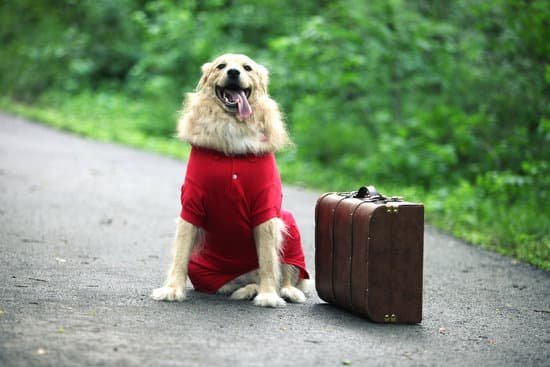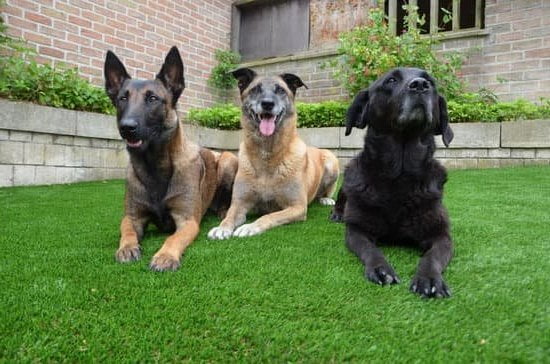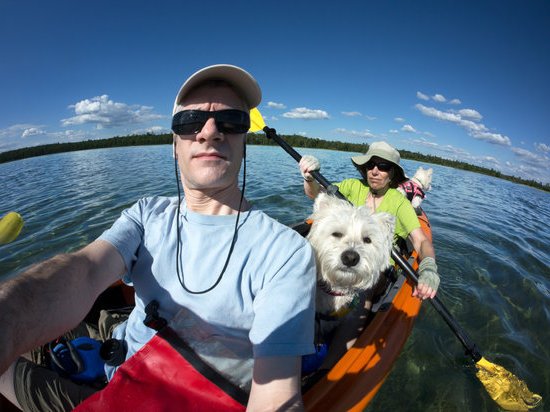Are you wondering how to house train an older rescue dog? House training an older rescue dog can come with its own set of challenges, but with the right approach and techniques, it is definitely achievable. Whether you’ve recently adopted an adult dog from a shelter or you’re experiencing difficulties with a senior rescue dog in your care, this article will provide valuable insights and practical tips to help you navigate the process of house training.
When it comes to house training an older rescue dog, it’s important to understand that each dog may have unique experiences and behaviors that influence their ability to adapt to new routines. By addressing the challenges of house training an older rescue dog, you can create a tailored approach that takes into consideration any previous trauma or neglect they may have experienced.
Starting with basic potty training techniques is crucial for setting a foundation for success. Creating a consistent routine for your older rescue dog and using positive reinforcement are also key elements in the process.
Additionally, this article will cover how to address setbacks and accidents, as well as ways to handle anxiety and behavioral issues that may arise during the house training process. Stay tuned for expert advice on seeking professional help and support for any challenges you may encounter along the way.
Understanding the Challenges of House Training an Older Rescue Dog
House training an older rescue dog presents unique challenges compared to house training a puppy. Older rescue dogs may have behavioral issues, anxieties, and fears resulting from their past experiences. These can make it more difficult for them to adjust to a new home and learn new routines. Additionally, older dogs may have established habits that are difficult to break, making house training a longer process.
One challenge of house training an older rescue dog is understanding their history and how it has shaped their behavior. Some rescue dogs may have experienced neglect, abuse, or trauma, leading to fearfulness or distrust of humans. This can impact their willingness to engage in house training activities and follow commands. It’s important for owners to be patient and empathetic towards their dog’s past experiences while working towards successful house training.
Furthermore, medical issues could also be a challenge when house training an older rescue dog. Some medical conditions such as urinary incontinence or digestive problems can cause accidents indoors, making it harder for the dog to learn appropriate bathroom behaviors. Owners should consult with a veterinarian if they suspect that a medical issue is hindering the house training progress.
| Challenges | Solutions |
|---|---|
| Behavioral issues from past experiences | Patient and empathetic approach, consistent routine, positive reinforcement |
| Established habits | Gradual retraining with positive reinforcement |
| Medical issues | Veterinary consultation for diagnosis and treatment |
Starting With Basic Potty Training Techniques
House training an older rescue dog can present its own set of challenges, but with patience and consistency, it is possible to successfully potty train them. When starting the house training process, it is important to go back to the basics. This means setting a schedule for regular bathroom breaks and providing positive reinforcement for good behavior.
One of the key techniques in potty training an older rescue dog is to take them outside frequently, especially after meals and naps. By doing so, you are giving your dog the opportunity to relieve themselves in the appropriate spot.
When they do eliminate outside, be sure to praise them and offer a small treat as a reward. Along with frequent bathroom breaks, it is essential to supervise your dog indoors at all times and watch for signs that they may need to go outside.
Another technique that can help with potty training is using crate training or confinement when you cannot directly supervise your older rescue dog. By confining them in a designated area when you cannot watch them closely, you are preventing accidents indoors and also teaching them to hold their bladder until they are taken outside. Utilizing these basic potty training techniques can lay the foundation for successful house training of an older rescue dog.
Creating a Consistent Routine for Your Older Rescue Dog
House training an older rescue dog can be a challenging process, but creating a consistent routine is essential for success. By establishing regular potty breaks and feeding times, you can help your dog understand the expectations and develop good habits. Here are some key tips for creating a consistent routine for your older rescue dog:
- Establish a regular schedule: Dogs thrive on routine, so try to take your older rescue dog out at the same times each day, such as first thing in the morning, after meals, and before bedtime. This helps them understand when they should go outside to eliminate.
- Use cues and signals: When it’s time to go outside, use a specific phrase or command to let your dog know what is expected. This can be as simple as saying “outside” or “potty time.” Over time, they will associate this with the need to eliminate.
- Monitor food and water intake: By controlling when your older rescue dog eats and drinks, you can better predict when they will need to go outside. Avoid free-feeding and provide water at set times to regulate their bathroom schedule.
Consistency is key when house training an older rescue dog. By establishing a routine that works for both you and your pet, you can set them up for success and make the house training process smoother for everyone involved. Remember to be patient and understanding as your dog adjusts to their new routine, and always offer plenty of praise and encouragement for good behavior.
Using Positive Reinforcement and Rewards
When house training an older rescue dog, using positive reinforcement and rewards is a crucial part of the training process. Positive reinforcement involves rewarding your dog for good behavior, which helps them understand what is expected of them. This will encourage them to repeat the desired behavior, making it an effective method for house training.
One of the most common forms of positive reinforcement is giving your dog treats when they exhibit good potty behavior. When they successfully go to the bathroom outside or in their designated spot indoors, immediately praise them and give them a treat. This will create a positive association between going to the bathroom in the right place and receiving a reward.
In addition to treats, verbal praise and affection are also important forms of positive reinforcement. When your older rescue dog follows the house training routine and exhibits good behavior, be sure to shower them with praise and cuddles.
This will further reinforce their understanding that they are doing the right thing, making it more likely for them to continue this behavior in the future. Remember to use these methods consistently and positively as you work towards successful house training for your older rescue dog.
Dealing With Setbacks and Accidents
Remaining Patient and Calm
When house training an older rescue dog, it is important to remember that setbacks and accidents are a normal part of the process. It’s crucial to remain patient and calm when dealing with these situations. Yelling or punishing the dog for accidents will only create fear and confusion, making the house training process more difficult.
Reassessing the Routine
If your older rescue dog is experiencing frequent accidents, it may be necessary to reassess the house training routine. Consider if there have been any changes in the dog’s environment or schedule that could be contributing to the accidents. Adjusting feeding times, potty break frequency, and crate time can help minimize accidents and set your dog up for success.
Consistency Is Key
Consistency is key when house training an older rescue dog. Remember to take them out for potty breaks at regular intervals throughout the day, especially after meals, playtime, and waking up from naps. Keep a close eye on your dog for any signs that they need to go outside, such as circling or sniffing around. By maintaining a consistent routine, you can help prevent setbacks and accidents during the house training process.
Remember that setbacks and accidents are normal when house training an older rescue dog. By remaining patient, reassessing the routine when needed, and maintaining consistency, you can help your dog overcome these challenges on their way to becoming fully house trained.
Addressing Anxiety and Behavioral Issues
When house training an older rescue dog, it’s important to address any anxiety or behavioral issues that may arise during the process. These dogs have often experienced trauma or neglect in their past, which can lead to anxiety and fear-based behaviors. Addressing these issues is crucial for successful house training and overall well-being of the dog.
Here are some strategies for addressing anxiety and behavioral issues in older rescue dogs:
- Patience and Understanding: Older rescue dogs may exhibit anxious or fearful behaviors such as pacing, whining, or hiding. It’s important to be patient and understanding of these behaviors, as they are often rooted in the dog’s past experiences.
- Gradual Exposure: Exposing the dog to new environments and experiences gradually can help reduce anxiety. Start with short periods of time in a new environment and gradually increase exposure as the dog becomes more comfortable.
- Positive Reinforcement: Use positive reinforcement techniques to encourage calm and confident behavior. Reward the dog with treats, praise, and affection when they exhibit calm behavior in potentially anxiety-inducing situations.
It’s also important to provide a safe and comfortable environment for the older rescue dog. This includes providing a cozy bed, ample toys for mental stimulation, and a consistent routine to help reduce anxiety.
Additionally, seeking guidance from a professional trainer or behaviorist can provide valuable support in addressing anxiety and behavioral issues in older rescue dogs. With patience, understanding, and proper support, it is possible to help an older rescue dog overcome anxiety and behavioral challenges during the house training process.
Seeking Professional Help and Support for House Training Challenges
Consulting a Veterinarian
If you are facing persistent challenges in house training your older rescue dog, it may be beneficial to seek professional help from a veterinarian. Sometimes, underlying health issues can contribute to a dog’s inability to control their bladder or bowels. A thorough medical examination can help identify any potential physical causes for your dog’s house training struggles. Additionally, your vet can provide guidance on managing any health-related obstacles to successful house training.
Enrolling in Obedience Classes
Another avenue for seeking professional support in house training your older rescue dog is enrolling in obedience classes. These classes not only help with general obedience training but also address specific behavioral issues, including potty training. Trainers can provide personalized recommendations and strategies tailored to your dog’s needs, offering practical assistance in overcoming house training challenges. Furthermore, the structured environment of obedience classes can help establish consistency and routine for your older rescue dog, facilitating the house training process.
Consulting With a Canine Behaviorist
In some cases, seeking assistance from a qualified canine behaviorist may be necessary if your older rescue dog continues to struggle with house training despite consistent efforts. Behavioral specialists can assess your dog’s behavior patterns and develop targeted intervention plans to address underlying anxieties or behavioral issues that may be hindering successful potty training.
Moreover, they can provide you with valuable insights and customized strategies to modify your approach based on your dog’s individual needs, ultimately aiding in the successful house training of an older rescue dog.
Celebrating Successes and Milestones in House Training Your Older Rescue Dog
In the process of house training an older rescue dog, it is crucial to celebrate the successes and milestones along the way. This not only highlights the progress that both you and your furry friend have made, but also reinforces positive behavior and encourages continued improvement. Whether it’s successfully completing a potty break outside, going a full day without accidents, or learning to signal when they need to go out, each accomplishment should be acknowledged and rewarded.
By celebrating these successes, you are helping to build your older rescue dog’s confidence and reinforcing their newly learned behaviors. Positive reinforcement is a powerful tool in shaping their habits and ensuring that they continue to make progress in their house training journey. It also strengthens the bond between you and your pet as you work together towards a shared goal.
Furthermore, taking the time to acknowledge these milestones allows you as the owner to appreciate the hard work and dedication that goes into house training an older rescue dog. It can be a challenging process at times, but recognizing the progress made can be incredibly rewarding. So, whether it’s a small step forward or a major breakthrough, be sure to celebrate each achievement as you continue on this journey with your beloved companion.
Frequently Asked Questions
How Do I Stop My Rescue Dog From Peeing and Pooping in the House?
There are several steps you can take to stop your rescue dog from peeing and pooping in the house. First, it’s important to establish a consistent routine for feeding, walking, and bathroom breaks. Supervise your dog closely indoors and take them outside frequently, especially after meals and naps.
Positive reinforcement training can also be helpful – praise and reward your dog when they go potty outside. Additionally, make sure to clean any indoor accidents thoroughly to remove any lingering smells that may attract your dog back to the same spot.
Can You Train an Older Rescue Dog?
Yes, older rescue dogs can definitely be trained! While it may require a bit more patience and consistency than training a younger dog, it is absolutely possible for older dogs to learn new behaviors.
Keep training sessions short and positive, using rewards like treats or praise to reinforce good behavior. Also, consider enlisting the help of a professional trainer who has experience working with older dogs if you encounter any specific challenges.
Can an Older Dog Still Be Potty Trained?
Although it may require some extra effort compared to potty training a young puppy, an older dog can still be potty trained. The key is to be patient, consistent, and understanding of any underlying health issues that may contribute to accidents.
Like with any form of training, positive reinforcement is crucial – make sure to celebrate successes and never punish your older dog for accidents as it can create anxiety around potty time. With time and effort, even older dogs can learn proper potty habits.

Welcome to the blog! I am a professional dog trainer and have been working with dogs for many years. In this blog, I will be discussing various topics related to dog training, including tips, tricks, and advice. I hope you find this information helpful and informative. Thanks for reading!





